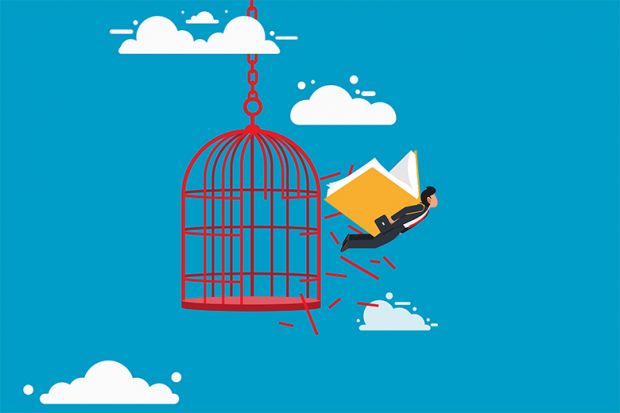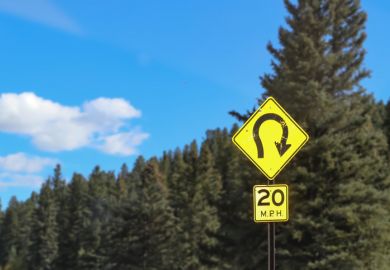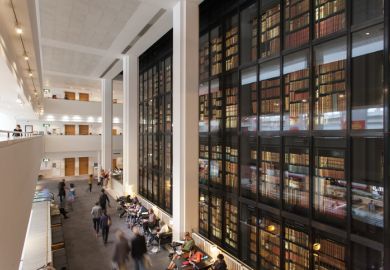When I published my book Conflicting Paths: Growing Up in America in 1995, Harvard University Press offered me a $10,000 advance, with no negotiation on my part. And while advances on royalties were not the norm, they were not rare, with royalty rates typically varying between 10 and 12 per cent of net sales revenue.
But although the book was widely noticed and sold well, it is revealing that I have yet to earn back that advance. Publishing was a different world then; these days, I would be lucky to get an advance at all. But nor would I seek one any longer.
Publishing has undergone indescribably complicated transformations since I published my first book in 1979, wrought by the intersections of constantly changing digital publishing technology with the socio-cultural and political economy of the industry.
Then, there were far more non-profit university presses – small, medium and large – underwritten by their institutions. The aim was less to make a profit than to break even. Many commercial publishers – Harcourt, Brace, Prentice Hall, Methuen, Macmillan, McGraw-Hill, among others – also had robust scholarly divisions and series and, until the early 2000s, there was relatively little significant difference between them and university presses. Print runs were in the range of 1,000 to 2,000 because library sales averaged between 1,000 and 1,200 and, while the publishers usually held copyrights, they shared them when asked.
Now print runs are much smaller, publishers are much more profit-focused, copyright is a constant bone of contention and royalty rates have collapsed. I was recently offered a contract by an international publisher that refused to share copyright and offered a meagre 2 per cent royalty, with much of the first printing exempted from payments. My challenge led that to be increased to a scarcely less paltry 4 per cent.
Since the 1990s, and especially the 2010s, scholarly publishing has substantially collapsed. Relatively few faculty now assign entire books, even paperbacks, as required course readings, and all-but-guaranteed library sales have fallen to barely 100 to 125, while retail and mail-order sales have plummeted.
As a result, many smaller publishers have closed and many others have been swallowed up by internationally owned conglomerates. While the parts of these companies may work well, they are uncoordinated and disconnected. For example, during the finalising of one of my recent books, my editor in London and production coordinator in Singapore were excellent. But print production in India was so flawed that I insisted on an immediate reprinting with many corrections.
My first book, The Literacy Myth: Literacy and Social Structure in the Nineteenth-Century City, has been reprinted by two different presses. However, the second reprint, in 2017, was published, as I saw it, without copyright permission because one publisher (Transaction) had been acquired by another (Routledge – itself owned by Informa) and no one apparently checked on the ownership of rights. I demanded that the unauthorised edition be taken out of print on the advice of my intellectual property attorney, and Routledge agreed. I had no need for such an adviser until late in my career.
That book was republished again in 2023 in genuine open access format, at no cost to me or anyone else with internet access. Considerable new material was added, with no production or other costs, and I retained copyright.
I moved to open access publishing in stages. My early digital editions are available only to people with affiliations to libraries with relationships to their publishers. But I am now committed to genuine open access and, whenever my subjects are relevant, I publish with WAC Clearinghouse, a scholarly collective founded by Colorado State University professor emeritus Mike Palmquist in 1997. Operating in collaboration with the University Press of Colorado, WAC combines the advantages of the widest possible readership with the continued production of print editions of new books.
I collect no royalties but receive any other payments, such as reprints or published excerpts. Given the dearth of royalties these days, I incur no measurable loss and I make considerable academic and intellectual gains, such as high-quality copy-editing and retention of copyright. The work is released under a Creative Commons Attribution-Non-Commercial-No-Derivatives licence, so I avoid the concerns about loss of control that makes some academics wary of open access.
In short, scholarly authors do have choices, even in 2024. WAC represents a powerful open access alternative that should be more widely replicated. According to its website, it draws on the various editorial services of more than 200 scholars from six continents, with the result that “our production costs are typically less than 10 per cent of the costs borne by the average scholarly press”. To date, it has published 225 books and more than 2,000 articles, resulting in 37 million downloads.
More outlets can establish themselves with a combination of voluntary contributions and institutional support. Faculty with relevant talents and experience may find roles in these endeavours. Ideally, their contributions should be valued as professional services in departmental and university annual reviews.
In this way, publishing can both regain its scholarly standards and broaden its readership – even if meaningful royalties remain a distant memory.
Harvey J. Graff is professor emeritus of English and history at Ohio State University. Most recently he published Searching for Literacy: The Social and Intellectual Origins of Literacy Studies (Palgrave Macmillan, 2022) and My Life with Literacy: The Continuing Education of a Historian. The Intersections of the Personal, the Political, the Academic and Place (WAC Clearinghouse, 2024).
Register to continue
Why register?
- Registration is free and only takes a moment
- Once registered, you can read 3 articles a month
- Sign up for our newsletter
Subscribe
Or subscribe for unlimited access to:
- Unlimited access to news, views, insights & reviews
- Digital editions
- Digital access to THE’s university and college rankings analysis
Already registered or a current subscriber?








